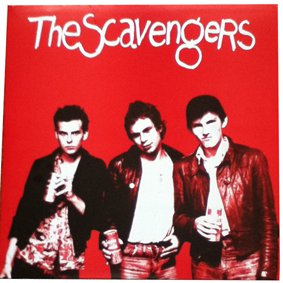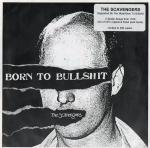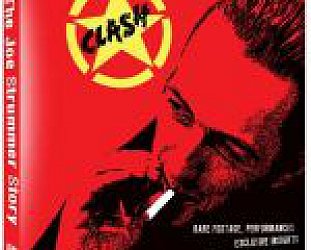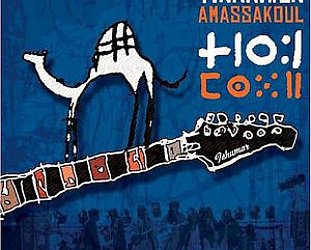Graham Reid | | 2 min read
The Scavengers: Money in the Bank

We all have musical moments
written into our autobiographies. The emblems afterwards -- the
album, concert ticket or scar beneath the eye -- are inadequate to
convey the emotion you experienced, whether it was when Tina Turner
belted out your favourite-ever song to you personally (and 35,000
others), or when you got nailed at Zwines in Auckland by some pogo-ing punk back in the late Seventies.
I'll never forget the first time I saw
the Scavengers at Zwines in what history books tell me was 1978. They
just tore the place apart with visceral energy. Didn't understand a
single word they sang. Didn't matter. It was inarticulate energy from all parties.
It's hard now for even its major participants to articulate what punk was like when it happened in this country, it was that frantic and fragmented, torn apart by energy and often personal vindictiveness.
It was also thrilling.
This artifact after the fact -- released on vinyl in '03 -- however meant that this band's short time in the torchlight became available for scrutiny and the structure of the record -- and we could actually call it that in every sense of the word -- conveyed some sense of it all.
The Scavengers' self-titled album
came with a lurid, Ramones-like frame-worthy cover photo (by Murray Cammick,
later the longtime editor of Rip It Up), had good liner notes, and
took the form of an aural history.
 The music is all here: their seminal
Mysterex (aimed at former frontman Mike Lezbian who'd quit for a career in advertising); an early version of the classic True Love, which, under a
later incarnation of the band as the Marching Girls, became a minor pop
hit; the Clash-influenced Supported by the State; Born to Bullshit, directed at the hype surrounding their rivals Suburban Reptiles and especially the Reptiles' manager Simon Grigg . . .
The music is all here: their seminal
Mysterex (aimed at former frontman Mike Lezbian who'd quit for a career in advertising); an early version of the classic True Love, which, under a
later incarnation of the band as the Marching Girls, became a minor pop
hit; the Clash-influenced Supported by the State; Born to Bullshit, directed at the hype surrounding their rivals Suburban Reptiles and especially the Reptiles' manager Simon Grigg . . .
And it sounds sensational. A sense of crashing against all kinds of walls; sonic, social and literal.
True Love -- pure pop with a classic opening line which could only have come from Kiwiland, "I met her outside the IGA [a corner grocery store], true love works in funny ways" -- captured the mundane and the sublime simultaneously, and delivered them with what could be equal parts cynicism and celebration.
Between the songs here are soundbites from an Eyewitness television doco of the time with the late Neil Roberts providing insight for Middle New Zealand into this aggressive punk phenomenon.
This is like a New Zealand punk concept album and oral history in one.
It also contains great songs.
Essential, of course.
Like the sound of this? Then check out this.
These Essential Elsewhere pages deliberately point to albums which you might not have thought of, or have even heard . . . Jump in.
The deep end won't be out of your depth . . .







post a comment